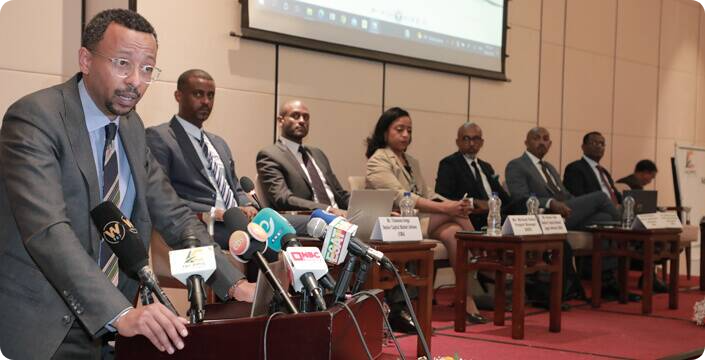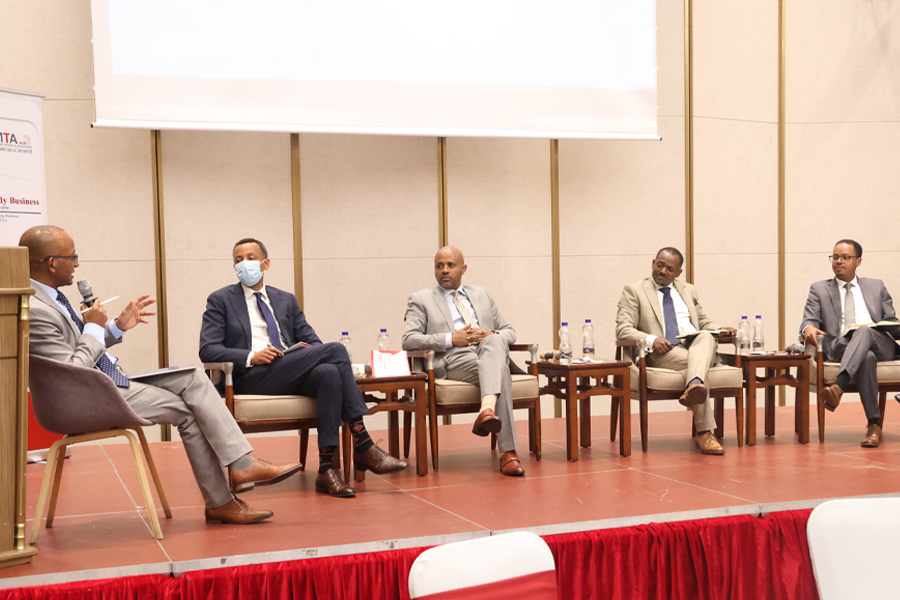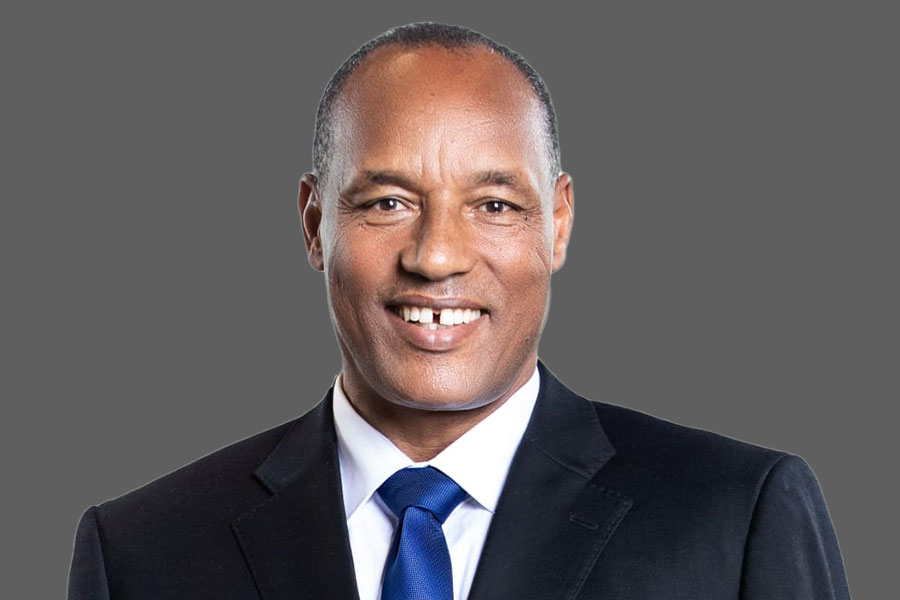
Feb 18 , 2023
By MUNIR SHEMSU ( FORTUNE STAFF WRITER )

Banks are required to create independent subsidiaries with 100 million Br capital to engage in investment banking of the upcoming capital market.
The realisation of a capital market is building up as three directives related to licensing capital market service providers, securities exchanges and trading platforms along with self-regulatory organisations were approved by the Capital Market Authority (ECMA) board last week. The Authority released the interlinked directives to the public, open to comments until March 6, 2023.
A license for an investment bank is contingent upon being a non-deposit-taking institution which renders all commercial banks in the country ineligible without new stipulations. One of the authors of the directive Sirak Solomon, senior advisor at the Authority said the necessity of creating independent subsidiaries of commercial banks if they are to engage in investment banking.
He said the increased capital requirement indicated for investment banks within a banking group, was a result of expanded liquidity expected of investment subsidiaries that could emerge within the sector.
Investment banking outside of a banking group is required a 25 million Br capital to engage in the market.
CEO of Kehali Strategic Advisory, Ermias Amelga, applauded the capital requirement reasoning that for the sector to thrive only strong institutions should be allowed to participate.
"Barriers to entry are essential," Ermias told Fortune.
The former Wall Street banker and founder of several businesses in Ethiopia who has urged for the diversification of the finance sector for decades heralded the directives as competently composed and reflective of international experience. He also does not see the degree of control that the Authority exercises as an impediment to free market operations. Financial markets need 'hands-on' regulation according to Ermias dismissing notions of moral hazard that might arise with government securities in the market.
"This is what every security exchange does," he said.
An exchange will be recognised as a self-regulatory organisation while complying with the requirements expected by the Authority. Following a complete application, a 90-day waiting period will determine if an exchange is granted a license or not. If granted, it may operate one or more security, derivative or over-the-counter (OTC) markets regulated by the Authority.
Prospective investors expect the first license for a security exchange to be given to the currently developing Ethiopian Securities Exchange (ESX) project under Michael Habte, partially funded by FSD Africa. Established in 2012, FSD Africa is a development agency working with financial markets in sub-Saharan countries.
Contingent upon meeting the minimum capital adequacy to establish, an exchange is expected to have enough liquidity either in cash or easily convertible instruments to cover its operation costs, capital expenditures and market risk exposure for up to a year.
A licensed security exchange is explicitly prohibited from executing orders against its own capital or matching principal trading on any trading platform, market or facility under its operations. It will be responsible for standardising tick sizes putting in place price collars and setting of maximum volume and value to be traded at a time.
While shareholders of an exchange may elect their board members, approval of both board members and chief executive officers is subject to the consent of the Authority. After getting the consent board members will be expected to subscribe to the 'fit and proper' standards indicated in the bill while holding the position.
Recognition as a self-regulatory organisation (SRO) is given by the Authority. While a licensed Ethiopian security exchange and security deposit and clearing company will be granted the status without having to apply, non-governmental organisations are eligible for an application.
An English or Amharic application will be processed upon fees, which the trifecta of directives all take very seriously, being made in the proper schedule. An application is subject to being thrown out if the aspirant SRO fails to keep up with the process for a consecutive 30 days lacking approval from the Authority.
Insurance companies can become institutional investors, having the experience to participate in the market as custodians. Sirak who was also part of the founding body behind ECX said the experience insurance companies have developed with underwriting has honed their skills in assessing risk.
"They're better accustomed to handling risk than the banks," he told Fortune.
The Ethiopian Insurers Association President Yared Molla confirms they are in preliminary talks with the Authority. Yared, who is also the CEO of Nyala Insurance told Fortune that an improvement in the legal framework surrounding investment is essential for capital markets to thrive.
The importance of intensive awareness creation in the business community should be highlighted as the capital market offers a chance to participate both as issuers and investors, said Yared.
The Authority expects the current assets of a service provider to be at least 40pc of its total except for advisors and appointed nominees. With certain conditionalities being adjusted for specific licenses, the directive offers 15 service provider license types for participation in the market accommodating digital sub-brokers and crowdfunding intermediaries. The smallest net funds required for operating as a service provider is 100,000 Br for an individual sharia compliance advisor.
Financial status, educational qualification, reputation and ability to perform with dignity and integrity are considered to deem capital market service providers as 'fit and proper' according to the standards set forth in the proclamation two years ago. The fidelity guarantee worth up to 20pc of the net worth of the service provider sticks out from the requirements for an application, while others such as police and tax clearance certificates along with authenticated documents of incorporation as a business entity are straightforward.
All service providers are also expected to comply with Know Your Customer (KYC) frameworks and report to the Authority of any change in ownership or relocation of offices.
The suspension of a license by the Authority will not take place without the opportunity for a hearing if the service provider transgresses specific regulations. It will then have to notify all clients within two days. The license is also open to revocation if the service provider fails to conduct business for a consecutive 18 months or a two-year span.
PUBLISHED ON
Feb 18,2023 [ VOL
23 , NO
1190]

Radar | Aug 07,2021

Viewpoints | Nov 18,2023

Radar | Oct 05,2024

Fortune News | Sep 01,2024

Commentaries | Jul 30,2022

Viewpoints | Jun 01,2019

Obituary | Mar 16,2024


Commentaries | May 31,2025

Fortune News | Jun 22,2024

Dec 22 , 2024 . By TIZITA SHEWAFERAW
Charged with transforming colossal state-owned enterprises into modern and competitiv...

Aug 18 , 2024 . By AKSAH ITALO
Although predictable Yonas Zerihun's job in the ride-hailing service is not immune to...

Jul 28 , 2024 . By TIZITA SHEWAFERAW
Unhabitual, perhaps too many, Samuel Gebreyohannes, 38, used to occasionally enjoy a couple of beers at breakfast. However, he recently swit...

Jul 13 , 2024 . By AKSAH ITALO
Investors who rely on tractors, trucks, and field vehicles for commuting, transporting commodities, and f...

Oct 4 , 2025
Eyob Tekalegn (PhD) had been in the Governor's chair for only weeks when, on Septembe...

Sep 27 , 2025
Four years into an experiment with “shock therapy” in education, the national moo...

Sep 20 , 2025
Getachew Reda's return to the national stage was always going to stir attention. Once...

Sep 13 , 2025
At its launch in Nairobi two years ago, the Africa Climate Summit was billed as the f...